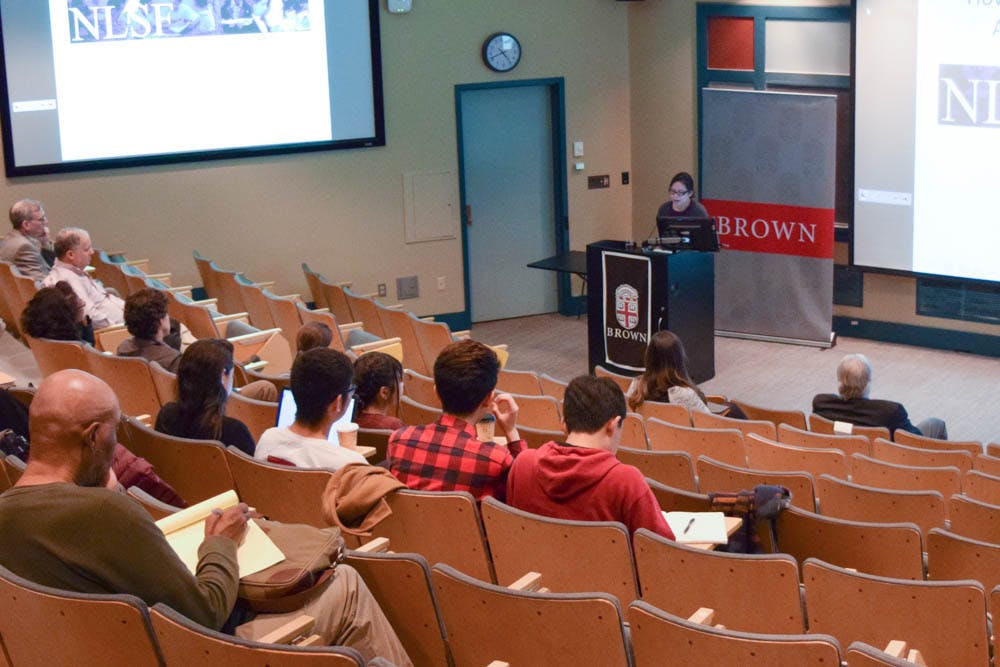Douglas Massey, professor of sociology at the Woodrow Wilson School of Public and International Affairs at Princeton, gave a lecture Thursday about the implications of stereotyping on academic performance.
Titled “How Race Matters in College Academic Performance,” Massey’s lecture is the third installment in the Diversity and Inclusion Lecture Series. Totaling eight lectures, the series aims to “allow participants to learn concepts, skills and effective approaches to engaging thoughtfully in a diverse and inclusive academic community,” according to a Sept 16. community-wide email from Liza Cariaga-Lo, vice president for academic development, diversity and inclusion.
Massey was selected to give a lecture because of his “extensive scholarship and deep commitment to understanding and addressing in his research issues related to international migration, race and housing, discrimination, education, stratification and poverty,” Cariaga-Lo wrote in an email to The Herald.
Massey conducts some of that research by using sociological methods to survey the impact of stereotype threat on minority students. The stereotype threat theory, proposed by social psychologist Claude Steele, posits that people are at risk of conforming to perceived stereotypes about their demographic group, Massey said.
The threat of stereotyping was further subdivided into two phenomena: externalization and internalization. Massey characterized internalization as the process through which “people are aware of the negative stereotypes that exist about them as they internalize them and feel them personally.”
He contrasted this with externalization, or when students aware of negative stereotypes believe fellow students hold those stereotypes to be true. This affects how students in minority groups “perform in a public setting, producing an extra burden of thinking constantly about how they’re acting,” Massey said. He added that both of these phenomena can result in lowered grades.
To gauge the scale of stereotyping’s impact on students, Massey measured the influence of a number of factors on students’ GPA and their likelihood of graduating. SAT scores were one of the weakest determinants of college performance, while high school performance had the strongest correlation to college success, Massey said. Additionally, expectations of being judged based on stereotypes matched up with lower GPAs and likelihood of graduation.
“If you internalize these stereotypes, you can start to disidentify,” Massey said, describing a process in which students reduce their work efforts so as not to risk failing and validating the negative stereotypes associated with their identities.
President Christina Paxson P’19 was present for the lecture and asked Massey about the impact of masking grades on stereotyping. Paxson said she wonders whether a policy of masking grades could help performance for some students.
“It’s a good idea, but it’ll be hard to test,” Massey said, adding that failure in the first semester could have a negative psychological impact, as “some students are vulnerable to internalization.” He added that “Those who expect to be judged experience lower grades.”
One of the purposes of Massey’s research is to alter the ways administrators address issues of diversity on campuses across the country. In imparting his findings to college administrators, Massey tends to receive different reactions based on the identities of his audience, he said. “People who deal with minority students will give you a lot of head nods,” Massey said. “From a white audience of administrators, I get a lot of blank stares,” he added. “Sometimes it seems like it’s news to them.”
“The goal of these lectures is to engage and inform all of us on the science and scholarship which pertain to diversity and inclusion issues,” Cariaga-Lo said. “The hope is that through that, we can more critically engage with the rest of our community.”
Correction: A previous version of this article stated that President Christina Paxson P'19 asked whether grade witholding would lead to underperformance for some students. In fact, she asked whether masking grades would help performance. The Herald regrets the error.





